Featuring Jill Grogan DVM Class of 2019
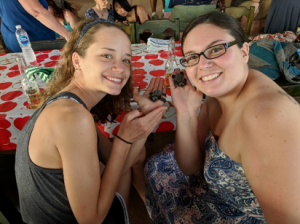
In January, my classmates and I participated in the Mazunte Project in Oaxaca, Mexico. Each of us was drawn to the program for different reasons but grew together throughout the project. My goals for the program included developing my surgical skills, understanding the needs of the communities that we were serving, improving my Spanish language skills, expanding on my background in marine biology, and learning about the logistics of a mobile veterinary program. It is my long-term goal to create a similar program for other rural communities in need. The experiences I gained during the rotation far exceeded my expectations.
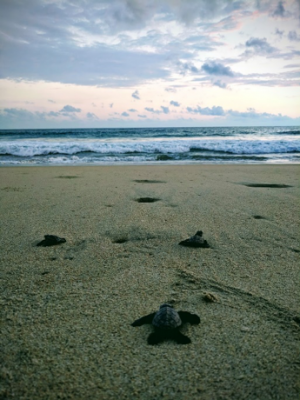
The goal of the Mazunte Project is to protect sea turtles that nest on the beaches of Mexico. One way this is achieved is through surgical sterilization of dogs and cats that live in the surrounding communities. Pet overpopulation and undernourishment drives animals to look for alternative sources of nutrition, such as eggs from sea turtle nests. The project began in 2001, with a team of less than 10 people that completed 60 spays and neuters. This year, more than 50 people worked together to complete 744 surgeries. This year also brought the first collaboration between veterinary medical students from Michigan State University College of Veterinary Medicine and Benito Juarez Autonomous University of Oaxaca. The MSU team started a few days prior and ended a few days after the rest of the teams that participated.
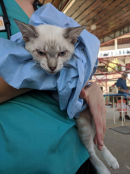
Prior to the Mazunte Project, I had only completed solo canine castrations. On my first day in Puerto Angel, I completed a feline spay, a canine spay, and a canine neuter. I had the opportunity to learn surgical techniques from a variety of veterinarians, including board certified surgeons. On my second day, I only spayed one dog, but she was a large hound mix who was a month pregnant. The owners were grateful for the surgery because they were not equipped to feed or care for her nine puppies. The local contact also was quite pleased; they told me that by spaying this one dog, I saved 10 dogs from suffering and living hard lives. In previous years, more than half of the dogs tested positive for Ehrlichia, a tick-borne disease that interferes with normal blood clotting. Many of the dogs that we worked with bled easily and had compromised tissue integrity, therefore forcing proper tissue handling techniques. By the end of the trip, I had more confidence in my surgical abilities—abilities that can only be gained with experience.
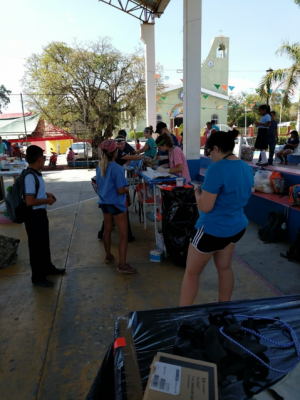
The growth of the program can be tracked in numbers of surgeries performed, but also in the Mazunte Project’s shift in care expectations; the access to veterinary care in the villages is limited or non-existent. People lined up and waited for hours to have their animals sterilized. Only a few years ago, most didn’t understand the benefits or want their animals to have these procedures. In addition to routine spays and neuters, many people used the clinics as an opportunity to receive other veterinary care for their pets. Several people brought female animals that had been previously spayed, but were still exhibiting signs of estrous, and male animals with retained testicles that had been left behind. The owners were very grateful that we performed surgical revisions to prevent future health concerns. In Rio Seco, a man brought his dog in for a prolapsed vagina. In my very broken and limited Spanish, I was able to ask for sugar to use on the dog. I was able to reduce the prolapse and demonstrate what he would need to do in the likely event of recurrence. It was challenging due to my limited grasp of the language, but I do think that I was able to communicate my message. In the last village we visited, we dewormed 15 dogs that had been previously sterilized. We didn’t offer vaccination services due to licensing limitations, but number of people who asked for them shows an increase in awareness and a desire to protect their pets and families from diseases.
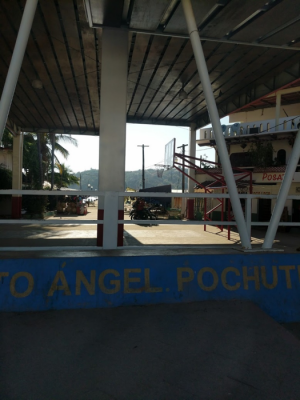
One evening, we were permitted to travel to a beach that is closed to the public because of the sea turtle nesting sites. Even on this protected beach, instead of active turtle nests, we found only broken shells from nests that had been ravaged by predators, mostly dogs, but also poachers. One of our local colleagues, Marcelino, found a nest that was hatching during a dangerous time, so he collected the hatchlings. We were able to release them later, during sunset, when predation is less likely; we released 100 Olive Ridley hatchlings into the sea that night. Unfortunately, a few birds grew wise to us and snagged a few as they were entering the water, but many more made it than would have if they had to do the entire march to the water unaccompanied.
Through my participation in the Mazunte Project, I grew both personally and professionally. My classmates and I are entering the veterinary profession as we face increasing financial, social and mental health challenges. Although these challenges didn’t disappear during my Mazunte experience, I was reminded about why I’m on this path. It was refreshing to be a part of such a diverse team of veterinary professionals from all walks of life and in different stages of professional development. Regardless of background, we all came together as a team to achieve a common goal.
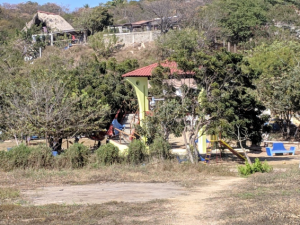
I left Mazunte much more confident in my surgical abilities that I was before the experience. I am grateful to our team that served as mentors and to the owners that trusted us with their pets. Regardless of the reason that people chose to bring their pets to take advantage of our clinics’ services, most were welcoming, patient, and grateful to our team. The human-animal bond is alive and well in the towns that we visited and not terribly different from the United States. I would like the acknowledge Dr. Pierre DePorre and MSU College of Veterinary Medicine for the financial support that was required to make this trip possible.
-
Town
Surgeries Performed
-
Puerto Angel16
-
Zipolite14
-
Rio Seco40
-
San Antonio24
-
Macahuite15
-
Santa Elena El Tule, Tonameca32
-
Tonameca31
-
Samaritan15
-
Chacahua7
-
El Venado13
